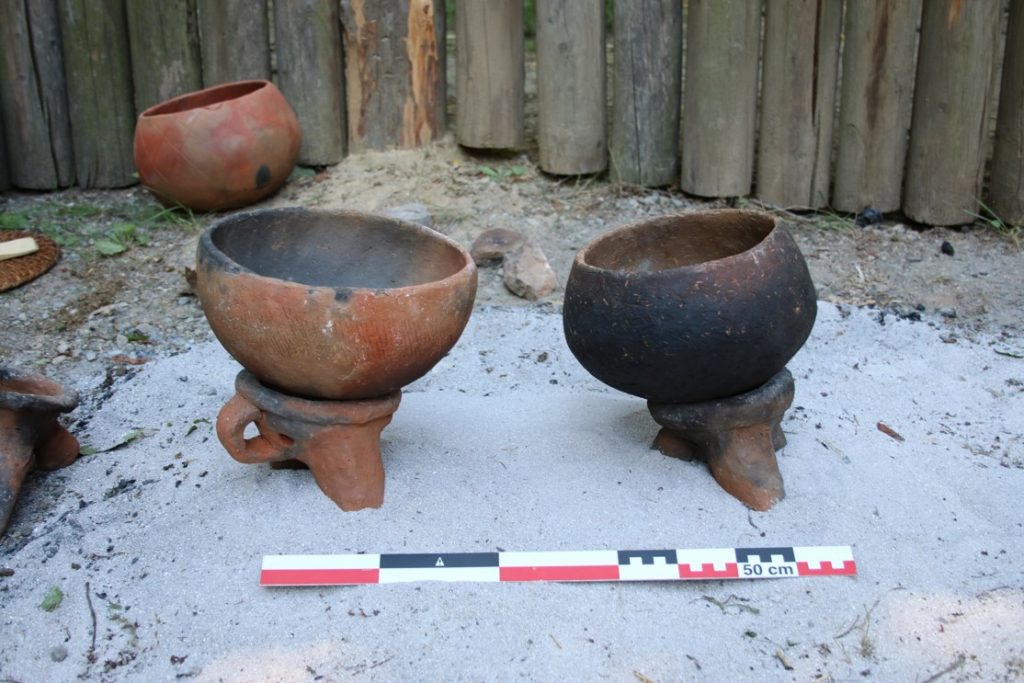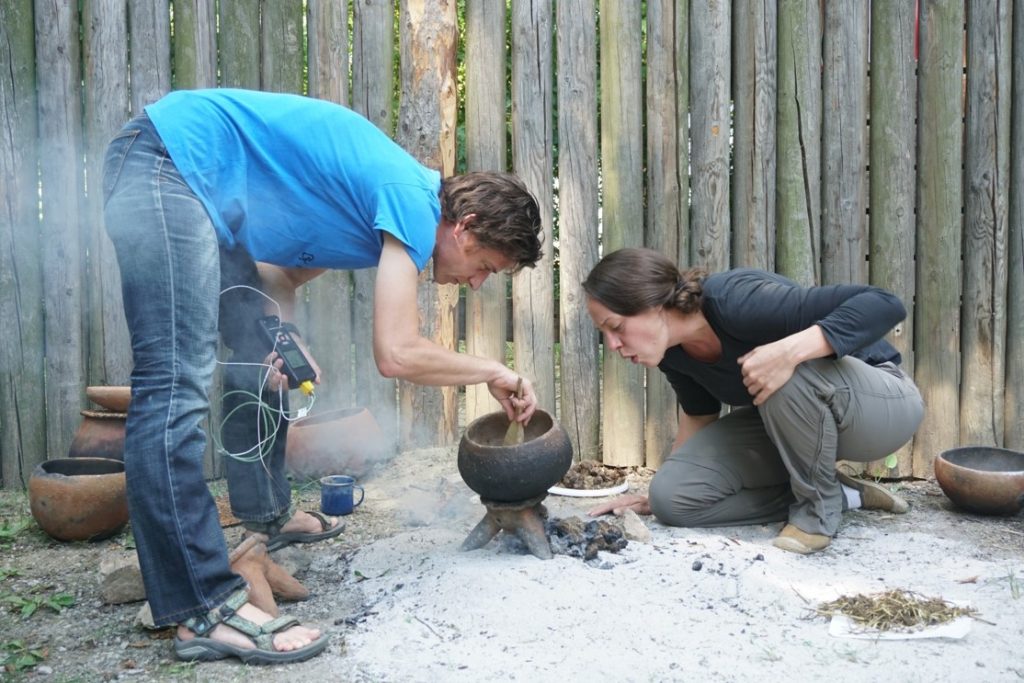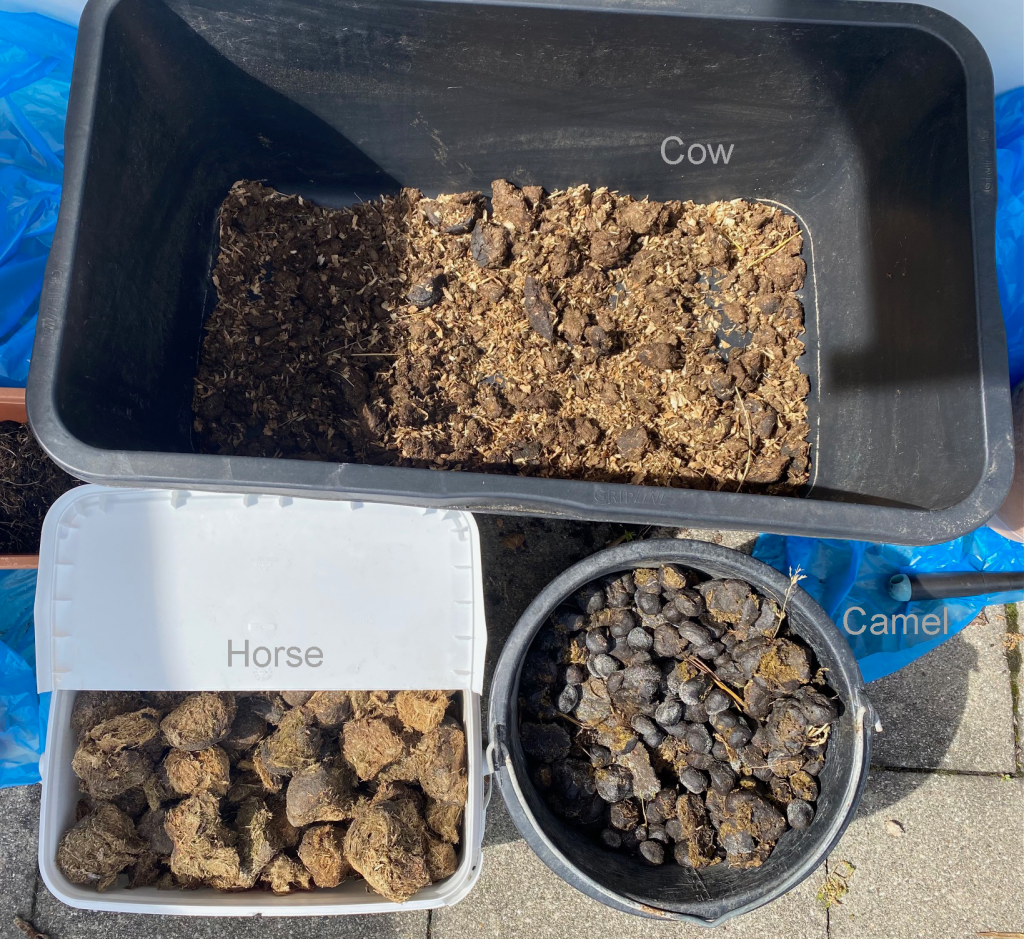It’s hard to believe – after more than one year with cancelled fieldwork in Egypt and Sudan, with online teaching including a digital format for our block seminar „Introduction to field archaeology“, it is now finally happening again: we are getting ready to go „to the field“ – respectively to practical work in Asparn/Zaya in Austria.
As a follow-up to our activities within the AcrossBorders project and built on the then established cooperation with the University of Vienna, we will conduct experimental archaeology related to Egyptian fire dogs and Nubian cooking pots at the MAMUZ Museum. Three days full of experiments are ahead of us – they take place within the framework of a MA course on field archaeology and will combine teaching with pressing research questions like the specific use of fire dogs.

Among others, we will produce a new set of replicas of fire dogs and will then test them with modern copies of Nubian cooking pots. Back in 2019, we were very successful in using one fire dog with a dung fire to heat dishes like bulgur. Temperatures of 450-580° were enough, the cooking time was c. 20 min and the addition of fuel was easy. This year we will make some new tests with barely.

As fuel for our experiments we will use various animal dung – we verified already in 2018 that dung as fuel works very fine and is indeed a possible alternative to wood which was scarce and precious in both ancient Egypt and Sudan.

This year, thanks to a kind colleague and friend here in Munich, we will also be able to test camel dung along with horse and cattle. Of course the domestication of camels in Egypt and Sudan happened much later than our period in question, the Late Bronze Age (camels were getting important in Ptolemaic times only), but burning ‘exotic’ animal dung in Austria is just very tempting and hopefully it will give a sense of being in the field in northeast Africa as well.
Looking much forward to this excursion starting the day after tomorrow and many thanks to all the colleagues in Vienna and here in Munich who made it possible. Of course, we will keep you posted about our results which will also be of relevance for the ongoing DivereNile project and our understanding of food production and cooking in Bronze Age Nubia.
